Therefore, tightening doctoral training in this context is necessary to comprehensively rectify and improve training quality.
Reduced scale, poor quality
According to statistics from the Ministry of Education and Training , in 2021, the scale of doctoral training in Vietnam was about 12,000 people. Compared to other countries in the region, this rate is very low: Less than 1/3 of Malaysia and Thailand, half of Singapore and only 1/9 of the average of 38 countries in the Organization for Economic Cooperation and Development (OECD).
The 2023 annual report of Ho Chi Minh City National University shows the current situation: the scale of doctoral training at member schools has continuously decreased in the period 2019 - 2023. If in 2019 the whole system had 1,178 doctoral students, by 2023, this number was only 995. As of November 30, 2023, the number of new postgraduate students was 2,257 people, of which only... 322 were doctoral students.
This is not a new phenomenon. The decline in postgraduate enrollment at member schools of Ho Chi Minh City National University has lasted for many years. From more than 10,000 candidates in 2012, this number dropped sharply to 2,912 in 2017, significantly lower than the assigned quota of 3,683.
Not only Ho Chi Minh National University, the situation of "thirst" for doctoral students is also happening at many higher education institutions across the country. For example, at Nha Trang University, within 5 years (2019 - 2023), with 11 doctoral training majors, the school only recruited 30 doctoral students. According to the doctoral enrollment plan of this school in 2025, in the period of 2020 - 2024, the majors of Fisheries Exploitation, Mechanical Engineering, Mechanical Engineering, Economics and Management of Marine Resources "have no" doctoral students for a number of years.
At Can Tho University, according to the doctoral enrollment plans, the target for 2024 is 181. The school recruited students in two rounds with 78 successful candidates, reaching more than 43%. The Aquaculture, Land and Water Environment, and Animal Husbandry departments could not recruit doctoral students. A year earlier, the enrollment rate was only more than 41%.
According to data from the Ministry of Education and Training, domestic postgraduate enrollment is decreasing significantly. In the 2019-2020 school year, the total target for doctoral training was 5,111, but only 1,274 people were admitted (24.93%). In the 2020-2021 school year, the total target was 5,056, and the number of admitted people increased to 1,735 (34.32%).
Notably, although the number of newly recruited graduate students is on the rise, no year has reached 50% of the total target. In the 2023-2024 school year, the country recruited nearly 3,400 graduate students, equivalent to only 47% of the target.

Low quantity, scattered in many places
Many university experts are concerned that the low number of doctoral students will directly affect the quality of university training and the development of science and technology in the country.
An Associate Professor at Ho Chi Minh City National University pointed out that nowadays, fewer and fewer people choose the path of postgraduate study for many reasons: in the field of engineering and technology, capable people often choose to study abroad instead of studying in the country; the process of doing postgraduate study is long, arduous, expensive and requires perseverance, which not everyone can meet.
On the other hand, the entry and exit requirements of doctoral programs are increasingly high while most of the doctoral students have to work and study at the same time, causing great pressure. For bachelor or engineer graduates in technical fields, having a good job and stable income often makes them not interested in further studies.
Some experts believe that although the target for doctoral training is still lacking students, the current training quality has not met expectations. One of the major reasons is the dispersion of resources.
As of 2022, the country has 196 training institutions licensed to train at doctoral level, including 157 higher education institutions and 39 research institutes, schools of political organizations, armed forces and schools of ministries and branches. Many doctoral training institutions, but the quality is uneven, the training scale is small and lacks concentration.
In addition, many doctoral theses are considered to be of poor quality. Many training programs still apply the idea of “you get in, you get out”, which makes the output quality not really guaranteed.
Many education experts warn that if the current situation remains, in the coming years, Vietnam will find it difficult to become a country with a world-class research university. Because it is the graduate students who are the main force creating scientific works and creating the research brand of universities.
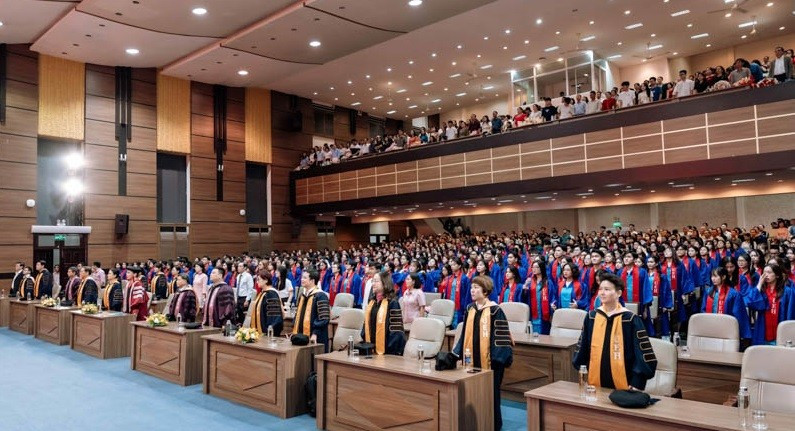
Tighten to improve quality
Faced with the difficult situation of enrollment, uneven training quality and shortcomings in policies and financial mechanisms, the need for strong reform of doctoral training in Vietnam is becoming urgent.
At the discussion session to contribute ideas to the draft Law on Higher Education (amended) organized by the Ministry of Education and Training in early July 2025 in Ho Chi Minh City, Deputy Minister of Education and Training Hoang Minh Son emphasized: in the coming time, doctoral training will be tightened to improve quality.
Under the new draft law, higher education institutions are autonomous in training within the scope of their licenses. However, some programs will have to be approved by the Minister of Education and Training, including: doctoral training; teacher training, health sciences, law; programs ordered by competent authorities or programs that have been suspended and are being corrected.
Currently, according to regulations, universities that have met the quality accreditation standards for undergraduate and master's programs can open corresponding doctoral training programs. However, this does not apply to majors in the health, teaching, defense and security sectors - areas that require special control.
According to Deputy Minister Hoang Minh Son, we have too many universities licensed to train PhDs. Recently, the Ministry of Education and Training has received many comments from National Assembly deputies and the people about the quality of PhD training. Therefore, re-planning the system is necessary. In the future, the number of institutions licensed to train PhDs will be reduced and the quality will be improved.
Many experts agree that it is necessary to tighten the recruitment and training process at the doctoral level, and at the same time focus resources on training institutions with real capacity. Dr. Le Viet Khuyen - Vice President of the Association of Vietnamese Universities and Colleges commented that recently, there has been a phenomenon of laxity in opening and implementing doctoral training programs in many places.
“Too many institutions are participating but not enough resources, leading to uneven quality,” he commented, pointing out a series of shortcomings that exist in the current doctoral training. Many training institutions have not met the minimum requirements for material conditions for research; the team of scientific instructors is lacking and weak, and even have to hire collaborators from outside to take on the role of supervising doctoral students.
The Vice President of the Association of Vietnamese Universities and Colleges noted that in advanced higher education systems around the world, not all universities are qualified to train PhDs. This requires the school to have a long tradition of research, a strong teaching staff, adequate facilities, and the capacity for international publication and technology transfer.
“Only universities that have reached a certain level can undertake the task of training PhDs. Meanwhile, in our country, many universities are still very young, even starting from a vocational school, and after only a few years, they rushed to open a PhD training program,” Dr. Khuyen stated his opinion.
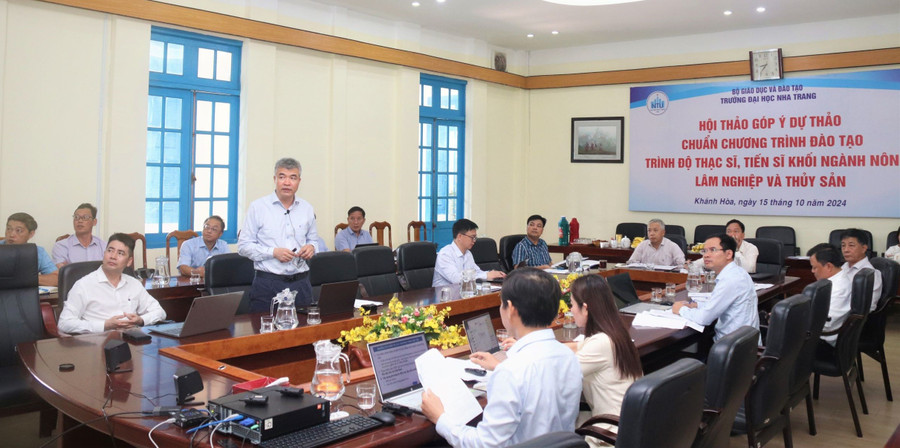
Flexibility in program regulations
Associate Professor Dr. Bui Anh Thuy - Dean of the Faculty of Law, Van Lang University, said that reform to improve the quality of doctoral training is necessary, but must be carried out with an appropriate roadmap, on the basis of respecting the autonomy of higher education institutions.
The world has recognized that for higher education to develop sustainably, university governance must be a pillar in the system's operation. Increasing university autonomy, coupled with improving academic accountability, is the key to transforming each country's higher education system.
In Vietnam, in recent decades, the law has recognized and gradually granted autonomy to universities. Specifically, training institutions need to have full authority to design training programs based on the general program standards issued by the State, but still suitable to the capacity, development orientation, educational philosophy and specific goals of each unit. Therefore, if the State regulates training programs in detail for each field, group of industries or specific industries, it is difficult to apply uniformly.
“University autonomy does not mean a guarantee of quality, but it is a fundamental premise to nurture core elements of higher education such as: learners' capacity and attitude, lecturers' qualities and expertise, university governance effectiveness, as well as social trust in training products,” Associate Professor Bui Anh Thuy analyzed.
At the discussion on the draft Law on Higher Education (amended), Associate Professor Dr. Nguyen Duc Trung - Principal of Banking University of Ho Chi Minh City, said that there are still many shortcomings in the process of opening postgraduate training programs, especially at the doctoral level.
Current regulations require that a higher education institution wishing to open a master's program must first have a corresponding undergraduate program. Similarly, if it wants to open a doctoral program, it must already have a master's program in the same field. This approach is becoming a major barrier to the development of high-quality human resource training programs.
“In many foreign universities, the number of master’s degree programs is even greater than that of undergraduate programs. That is, they are not required to have a lower level of training before being allowed to open a higher level,” Mr. Trung cited, saying that if the current rigid regulations continue, schools will have to spend 7-8 years to complete all training levels before being able to implement doctoral programs, making it difficult to develop highly qualified human resources for new fields.
The Ministry of Education and Training should consider a more flexible mechanism, allowing schools to open master's and doctoral training programs if they fully meet the necessary conditions regarding teaching staff, facilities and training programs.
In the long term, the training system and degrees need to be clearly divided into two types of doctorates: research-oriented doctorates and applied doctorates. Vietnam can refer to some models in the US states in the process of re-planning the university system.
Specifically, it is necessary to clearly classify higher education institutions according to orientation: universities that train PhDs and universities that do not train PhDs. This stratification will help build appropriate development strategies, avoid spreading resources and ensure training quality. - Dr. Le Viet Khuyen (Vice President of the Association of Vietnamese Universities and Colleges)
Source: https://giaoducthoidai.vn/dao-tao-tien-si-gan-duc-khoi-trong-post746505.html










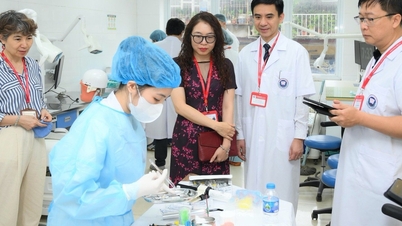

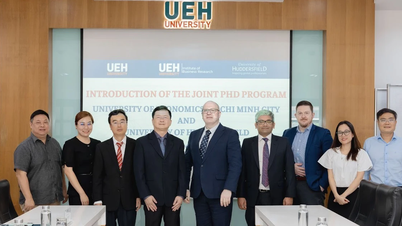
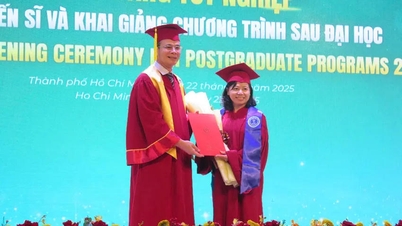



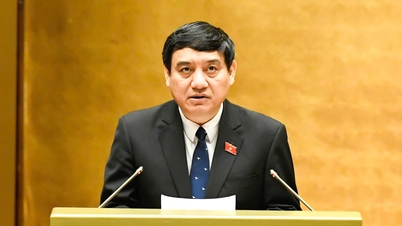

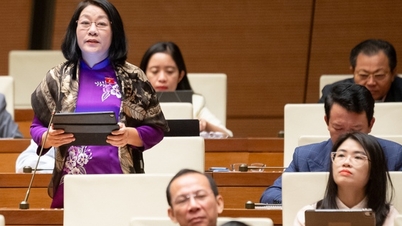

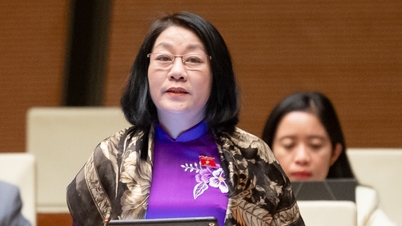
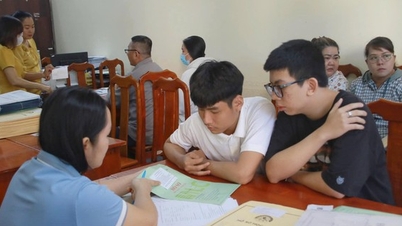
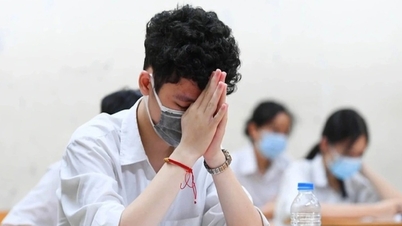

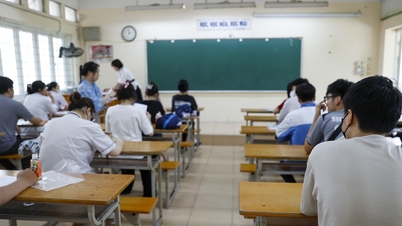









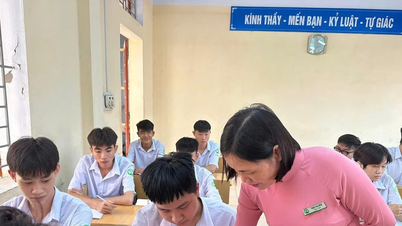

![[Photo] Parade to celebrate the 50th anniversary of Laos' National Day](/_next/image?url=https%3A%2F%2Fvphoto.vietnam.vn%2Fthumb%2F1200x675%2Fvietnam%2Fresource%2FIMAGE%2F2025%2F12%2F02%2F1764691918289_ndo_br_0-jpg.webp&w=3840&q=75)











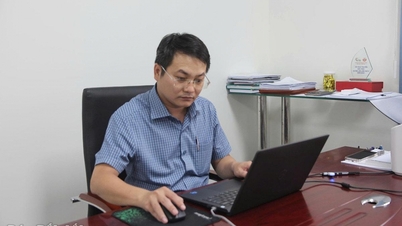







![[VIMC 40 days of lightning speed] Hai Phong Port determined to break through, reaching the target of 2 million TEUs by 2025](https://vphoto.vietnam.vn/thumb/402x226/vietnam/resource/IMAGE/2025/12/04/1764816441820_chp_4-12-25.jpeg)













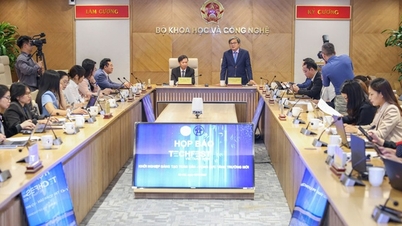







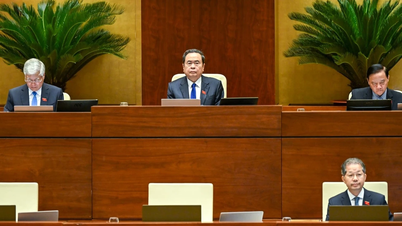



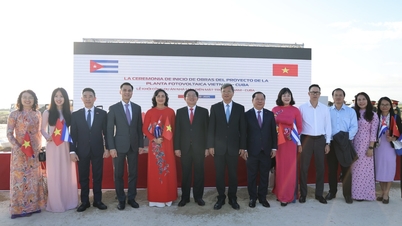




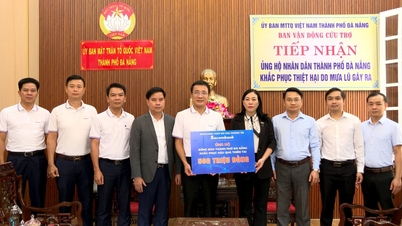




















Comment (0)